Terence Davis: ‘I turned down good money to play in the Euroleague, I want to get back in the NBA’

Terence Davis, one of the top NBA free agents who went unsigned this past summer, joined the G League’s Rip City Remix after having spent the first four seasons of his career with the Toronto Raptors and, most recently, the Sacramento Kings. The former All-Rookie 2nd Team member sat down with HoopsHype to discuss his free agency experience, his recent Achilles tear, helping Sacramento end their playoff drought, and stories of his time around the league.
Has the experience of being away from the NBA for an extended period, dealing with an injury, and having a less successful year compared to your career so far been humbling?
Terence Davis: It’s definitely humbling. I believe God is guiding me through this humbling journey, and I’m embracing and accepting it. It’s not like I have had a terrible career or anything. I’ve put some things on paper. Sometimes, things don’t work out, and things don’t go how they should.
Do you harbor any negative feelings or animosity?
TD: No, not at all. During the G League Showcase in Orlando, Sacramento Kings assistant general manager Wes Wilcox approached me before I took to the court. He extended an apology for how things didn’t work out. Sometimes, things don’t work out, and God makes no mistakes. Right now, I’m in a boot, having torn my Achilles less than two weeks ago. This is news that many are unaware of, and I’m navigating through this humbling experience. I’ll come out on the other side if it aligns with God’s will.
Can you elaborate on the difficulties you've faced and whether it fuels your comeback?
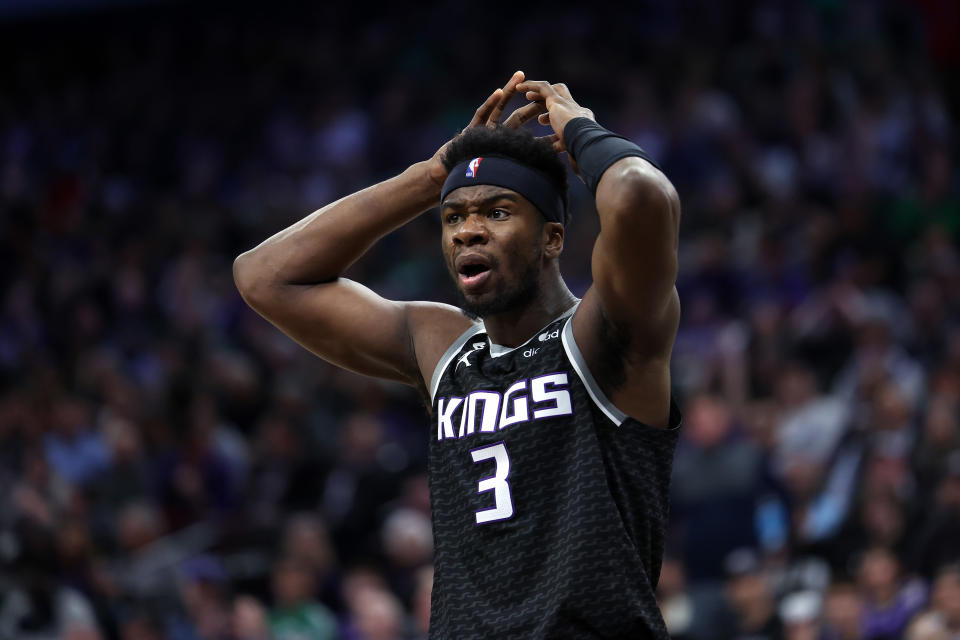
TD: Man, it’s been relatively simple, but it’s rarely been on the easier side because my wife and I just had a kid. We had a little girl, and she’s about four-and-a-half months old. Having a daughter changes you; it just makes you do things differently and look at things differently. So, having her made me appreciate life more. So, it’s been relatively easy. If my time in the NBA is done now, I’m just excited to have a daughter and be able to put life into her.
But that dog and that hunger will always be there within you. You want to go out and prove you want to get better, and now that I’m injured, I feel like nothing but to prove to people that I can come back from an injury like this. I’ve seen clips of Kevin Durant talking, all these guys, DeMarcus Cousins, Wesley Matthews, who have gone through this type of injury and comeback, returned to performing at high levels, and that’s what I’m out to do. Medically, I am here in Los Angeles now. I have surgery [January 16] with Dr. Richard Ferkel of the Southern California Orthopedic Institute. He’s the same guy who did Klay Thompson and Cousins surgeries.
Was it a complete rupture or just a partial tear?
TD: They said it was a complete rupture. It’s not a low rupture. It’s a bit higher. Dr. Ferkel said it’s not a bad or a good thing. Hopefully, that helps me with my recovery; I still have a lot of tendons left. I’m hoping for a complete and fast recovery to return for training camp in August or September.
Do you know what your recovery timeline is? Are you on pace for training camp?
TD: Not yet, we haven’t had surgery. I get reevaluated in a week. Then, I will get to fly home and probably won’t see Dr. Ferkel again for another three or four weeks. So, that’s when I can start my rehab, and we’ll know the timelines.
What did tearing your Achilles feel like?
TD: I went up to rebound and came down, then felt like someone kicked me, and when I tried to stand up, my one foot felt slanted even when it was flat against the ground.
What was it like being a part of an inaugural G League team like Rip City Remix?
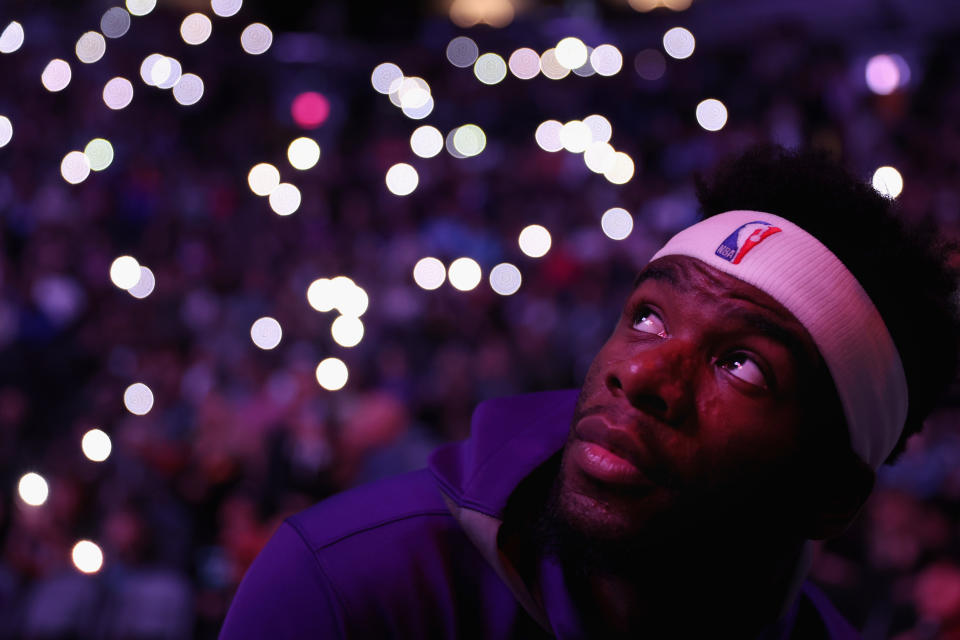
TD: Just talking to Joe Cronin, the Trail Blazers general manager, and Mike Schmitz, their assistant GM, is why I ended up coming over there. It was two or three weeks before I officially said I’d come play. They made everything possible and have been doing everything they could even after the injury. Those guys have been phenomenal. It was a short stint. I played about seven games.
How much different is the G League style of play compared to the NBA?
TD: That was the first time I’d played in the G League since I’ve been in the NBA. In my rookie year, after being undrafted, I thought I would play in the G League for pretty much the whole year. I had a great training camp, and Coach Nick Nurse played me for 15 minutes on opening night. I didn’t know what to expect, but guys work extremely hard. Everybody’s got the same goal: to get called up. Opportunity is the best thing. It’s the best place to play to get called to the NBA. I do give the G League credit for that.
If someone asked, "Hey, Terrence, share your thoughts on how the G League could improve to attract more people after your experience playing," what would you say?"
TD: The training and trainers were not where they should be. Because you are still dealing with professionals, it’s different from where it should be. They try to take this seriously. They really do. The training staff is great. That’s definitely one of the tips I would mention. They need more technology there. You’re still dealing with professional athletes who have left college early and are still young. You just want to make sure they’re getting that NBA feel. Making sure you get the right amount of treatment is something I’d recommend.
Regarding the decisions around playing in the NBA or pursuing opportunities overseas, did you ever question your path before joining the G League?
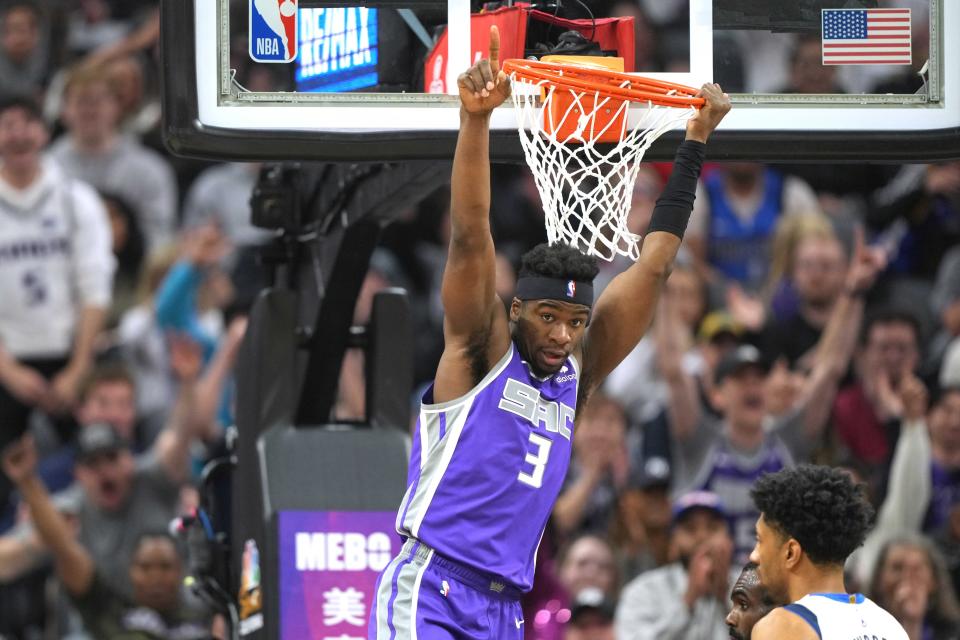
TD: I think only a few people know this: I turned down a good amount of money to play overseas in Greece, in the Euroleague. I said no, as I want to get back in the NBA and to stay in, you have to play in the G League.
Was that a hard decision?
TD: It wasn’t hard, but it was a tough decision. Anytime there’s money on the table, you never want to leave it out because you never know what happens; look at my situation now. With a torn Achilles, you just never know. So, it’s always gonna be a tough decision. Sometimes, you gotta make sacrifices, and that’s what I try to do: make a sacrifice to get somewhere where I feel like I belong; I feel like I’m an NBA player. I didn’t want to take my family overseas and have my wife in a different country with a newborn. So, I just made sacrifices for my family and decided I’d stay in the United States.
Is there a specific skill you're actively developing that may go unnoticed by most people?
TD: I can be a good defender, and that takes being in good shape. However, handling the rock and playmaking to make your teammates better were things I was trying to show in the G.
Who is the hardest player you've ever guarded in the NBA?
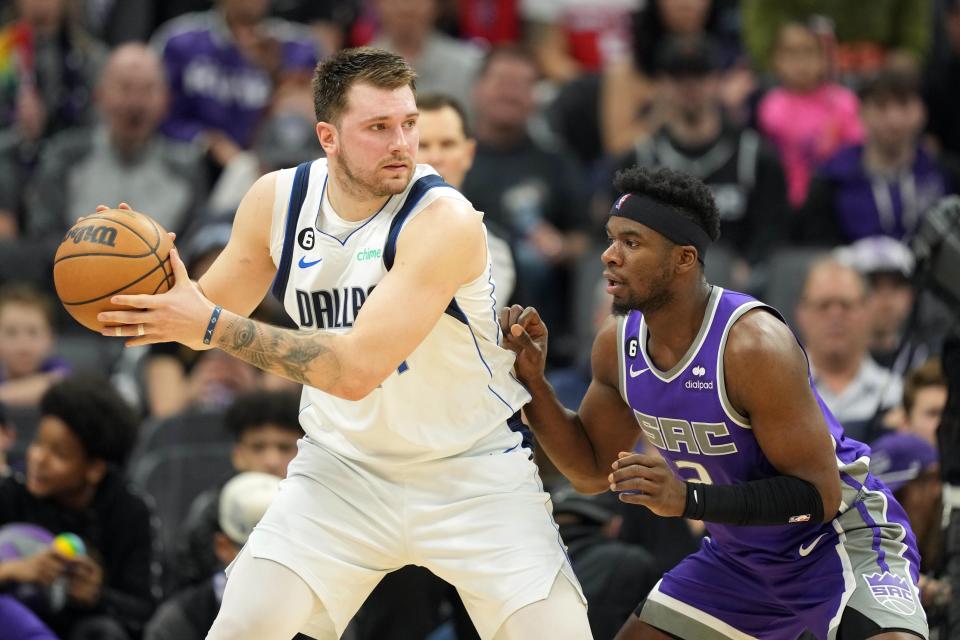
TD: Man, I get this question a lot. I have to say Luka Doncic because he’s 6-foot8. He’s about 225 to 230 pounds. And you can’t speed him up. So, he’s playing at his own pace. If you try to speed them up, you’ll get him out of his own pace. That’s the only thing you can try to do other than double-teaming him. He took me to the post two or three times in a row, and the third time, I just fouled him because there wasn’t anything I could do.
What’s it like playing against some of these guys like Luka Doncic?
TD: This is normal; you have a co-worker who’s phenomenal at their job. That’s simply what it is. Stuff you see all the time, some guys do way better than others when you play at a high level.
Who's a role model or someone you emulated growing up?
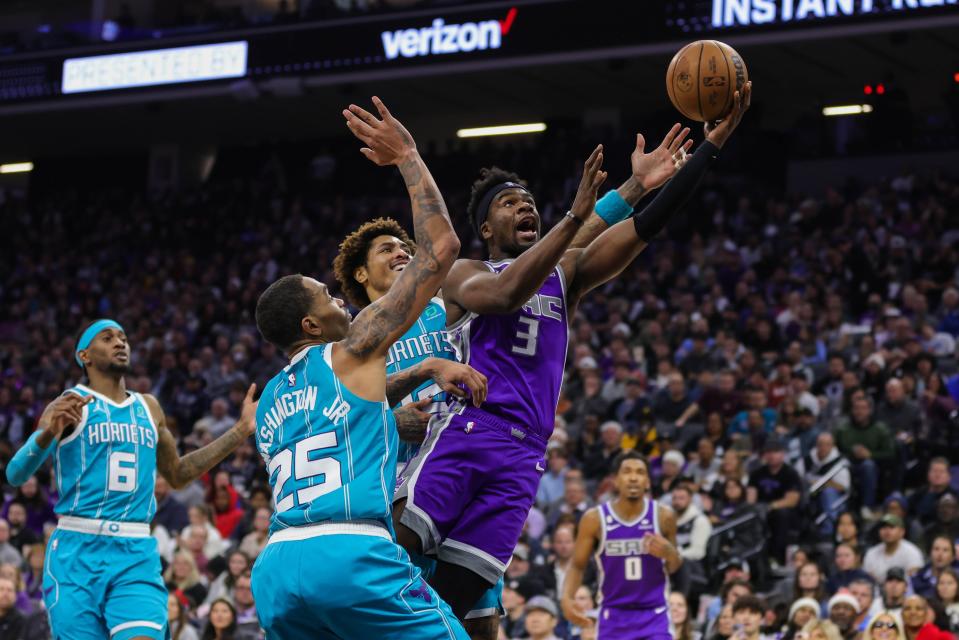
TD: I used to watch Dwyane Wade a lot. I wouldn’t say a mirror, but I watched him, saw what he does defensively and offensively, how he carries himself, and how poised he is in certain dimensions of the game. So, that’s definitely one guy. I wouldn’t say emulate my game, but Manu Ginobili was someone I watched a lot as a San Antonio Spurs fan growing up.
Any young players you’re a fan of?
TD: Some of these guys aren’t considered young anymore, like Anthony Edwards; he is among the top 10 players in the league. Scottie Barnes is another one. I’ve been watching Chet Holmgren. The Oklahoma City Thunder have a lot of guys. And the young fella in Orlando, Paolo Banchero. The younger guys are taking over.
How was the transition from playing under Nick Nurse in Toronto to being under Mike Brown in Sacramento?
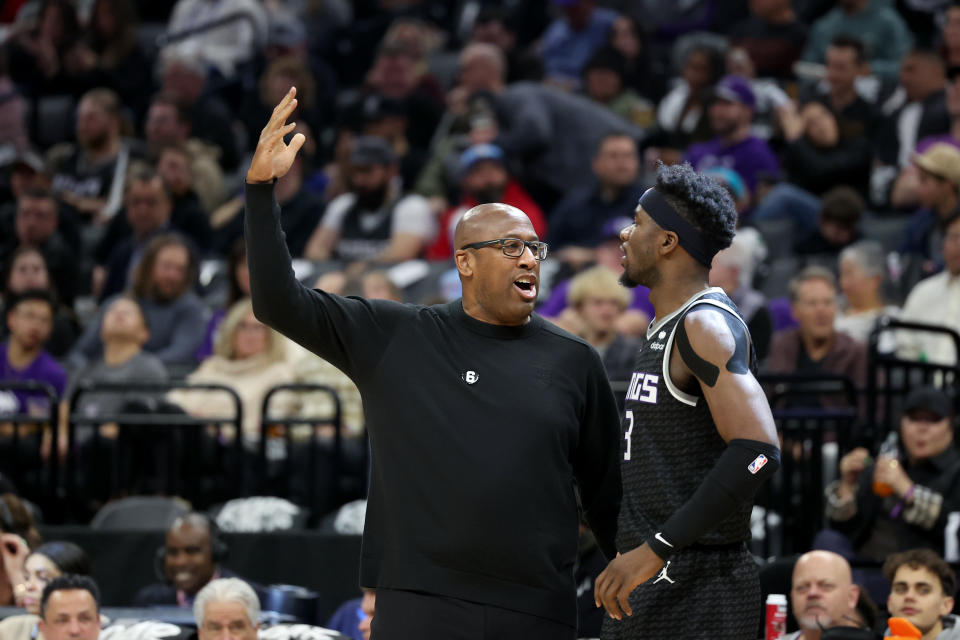
TD: The cities are different; Toronto is more of a melting pot, and Sacramento is way more agricultural. I would say Sacramento has some of the most loyal fans; their fans are unbelievable. Still, Sacramento fans still reach out and show support to this day. Going from a 16-year playoff drought and the fans rallying around the team was incredible.
When you joined the Raptors, they had recently won a championship and had a playoff culture. On the other hand, Sacramento, a team with a more extended playoff drought... Was the experience of ending that drought more fulfilling than the consistent playoff expectations with the Raptors?
TD: Looking back on my rookie year, it stands out as one of the best, especially with the valuable learning experience alongside seasoned veterans. There was a sense of freedom and focus, playing without worries or distractions. However, last year with Sacramento was truly unique, being part of ending a playoff drought.
When people think of Terence Davis, what is one specific thing you want them to have in mind?
TD: A humble guy down to earth. Someone who came from nothing. Honestly, I’m a Mississippi guy.

